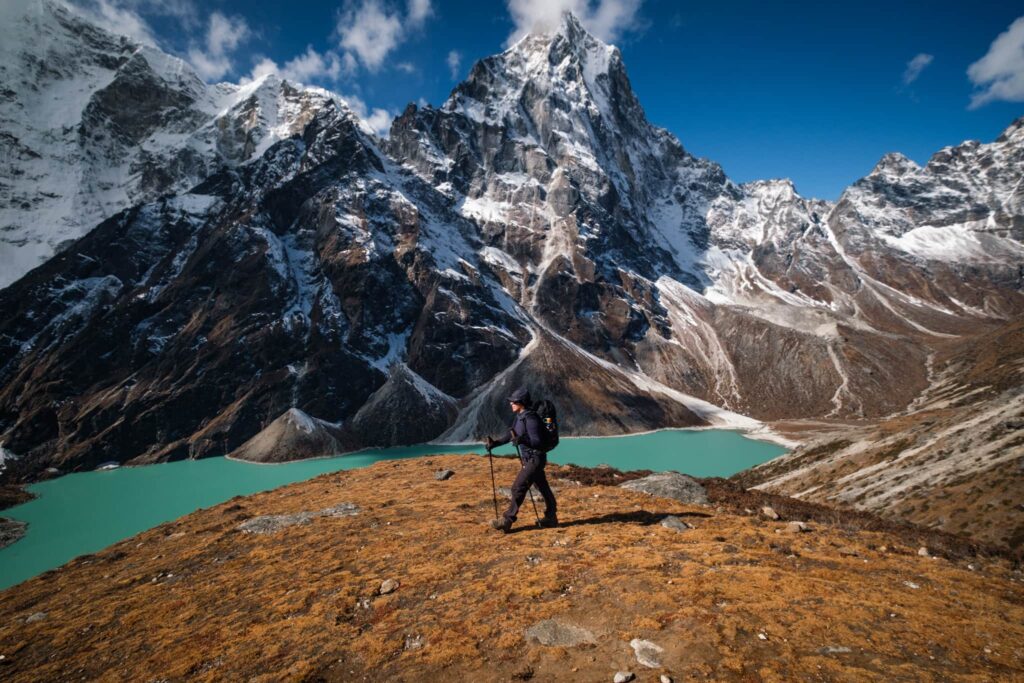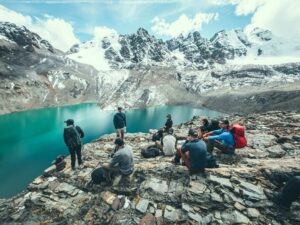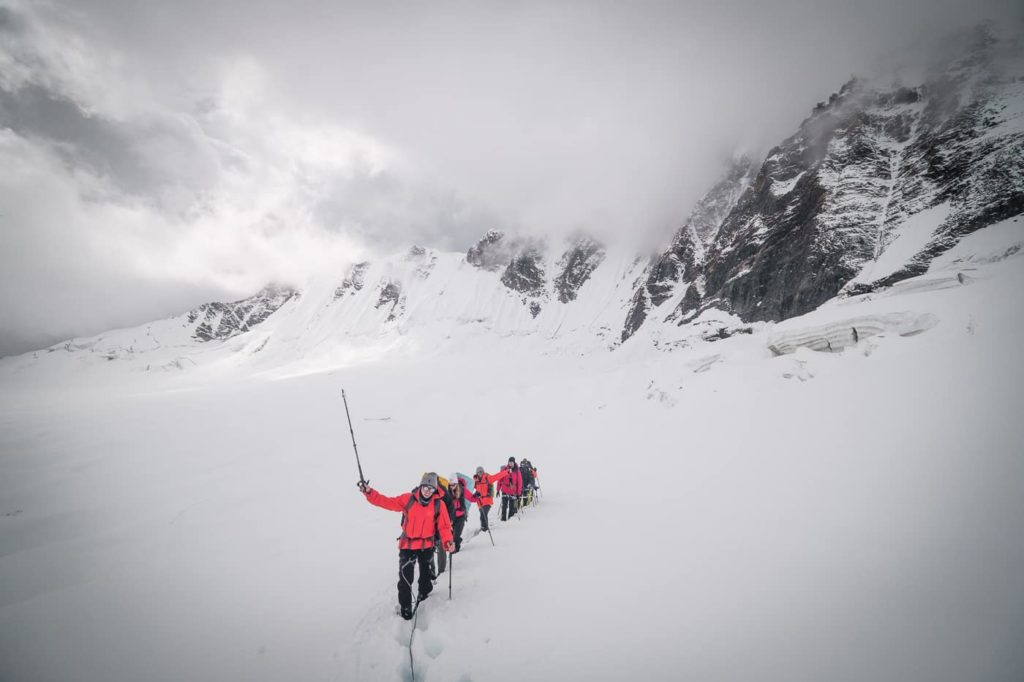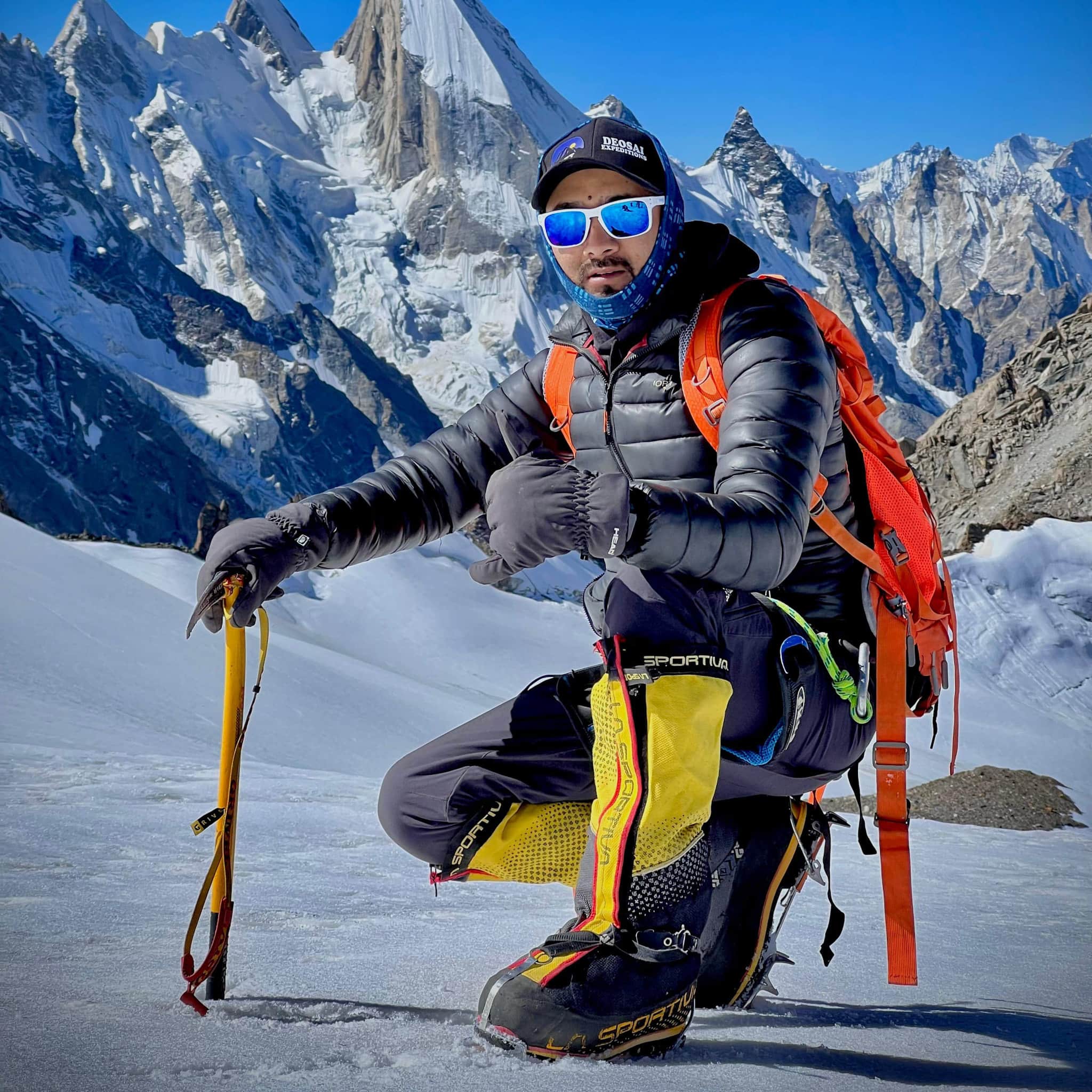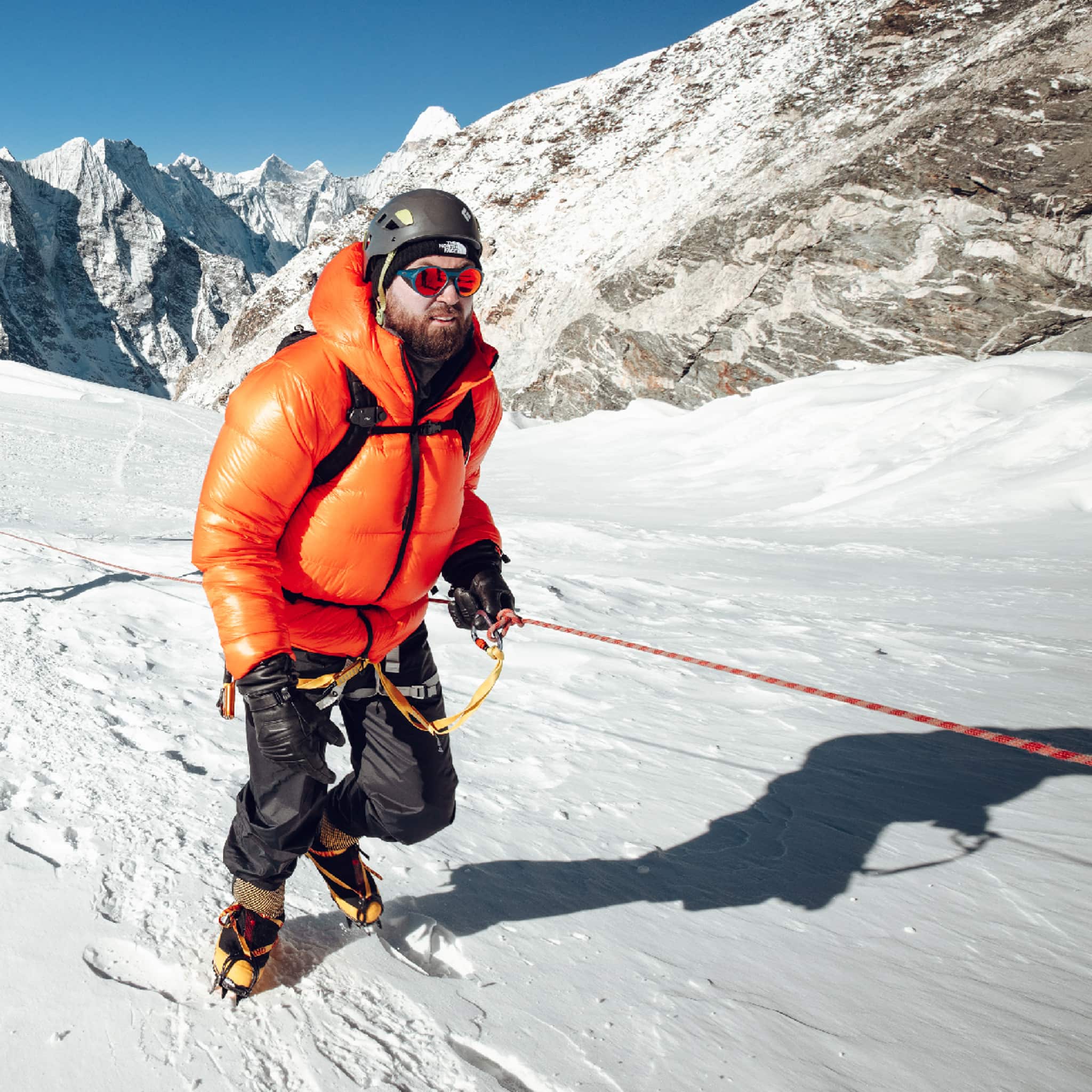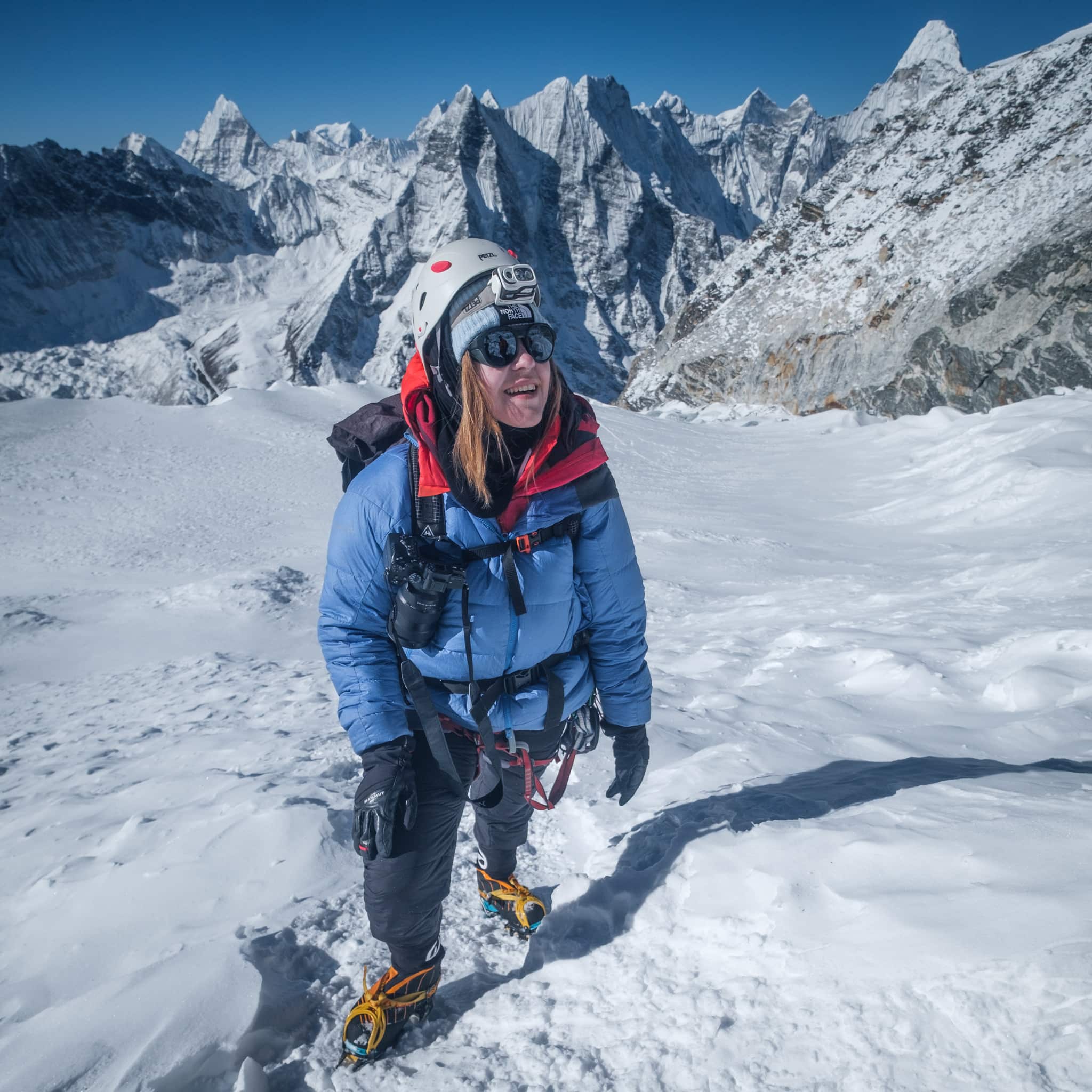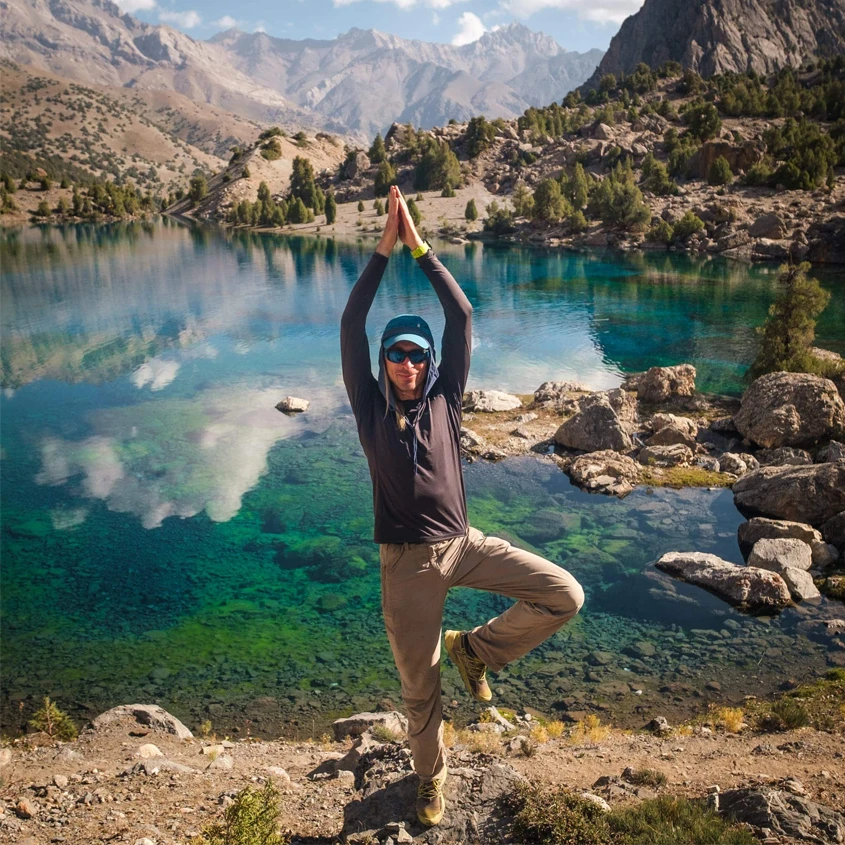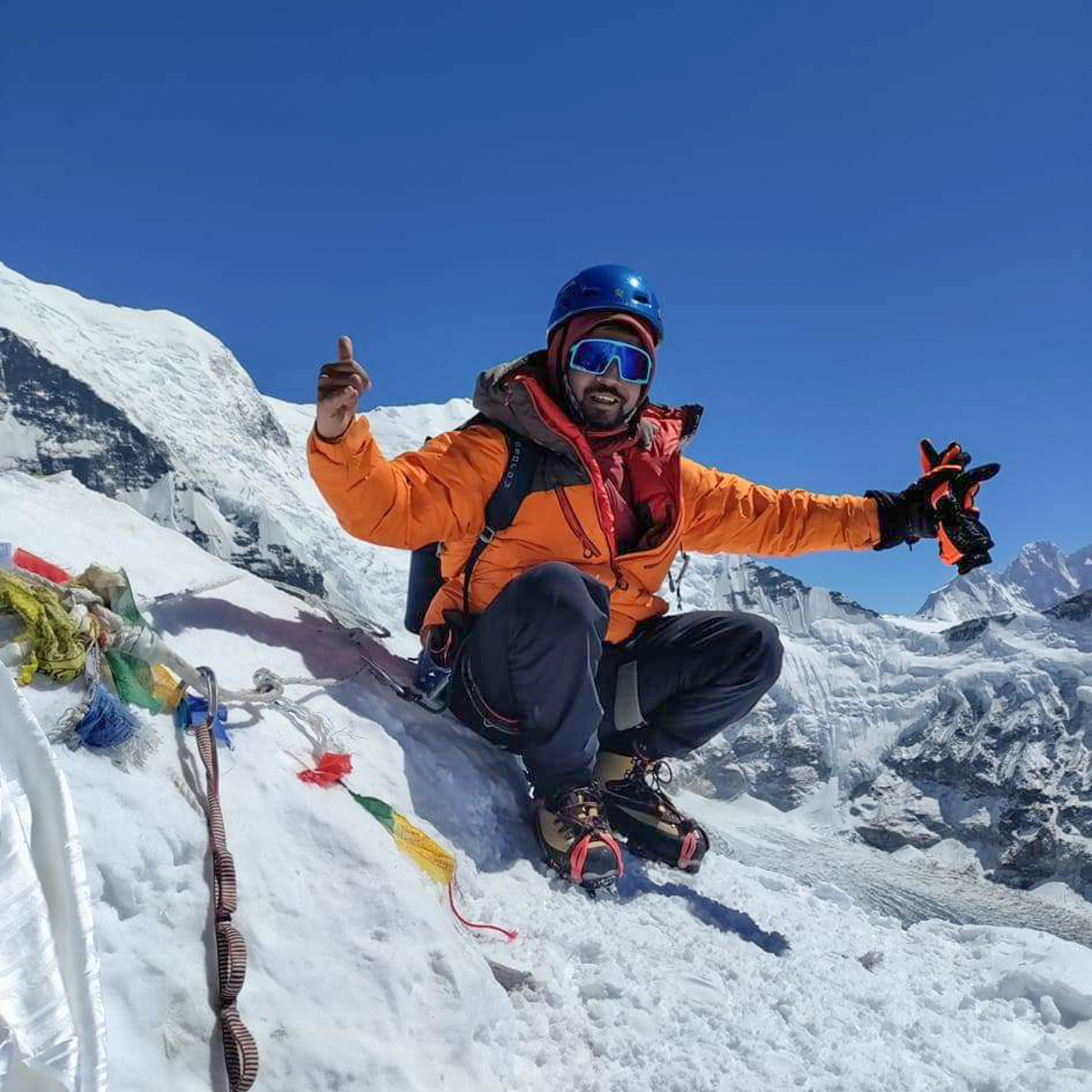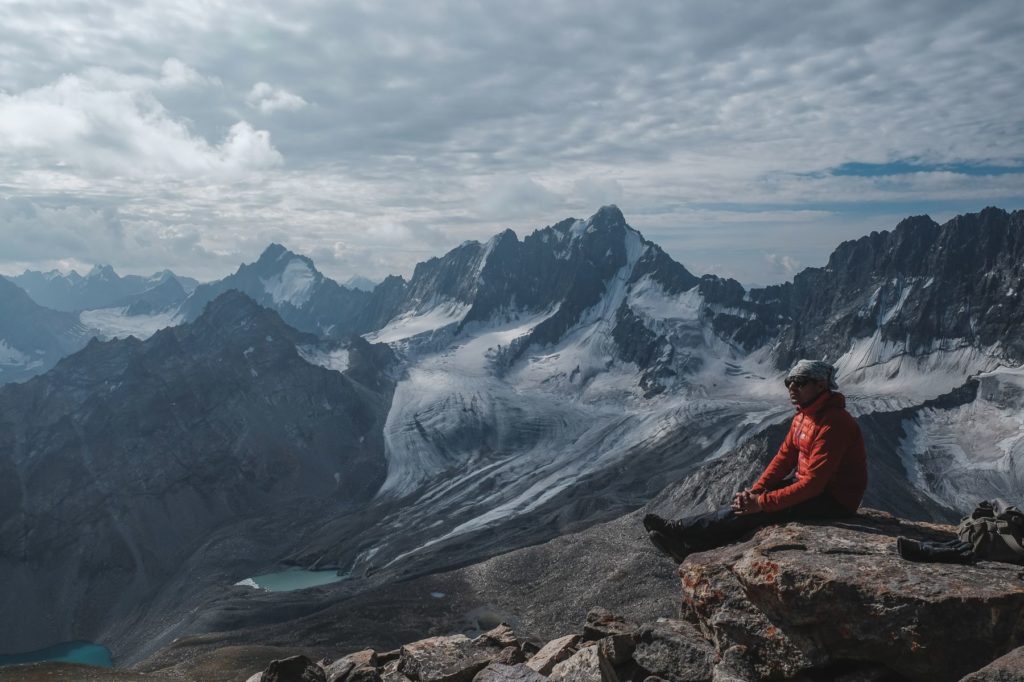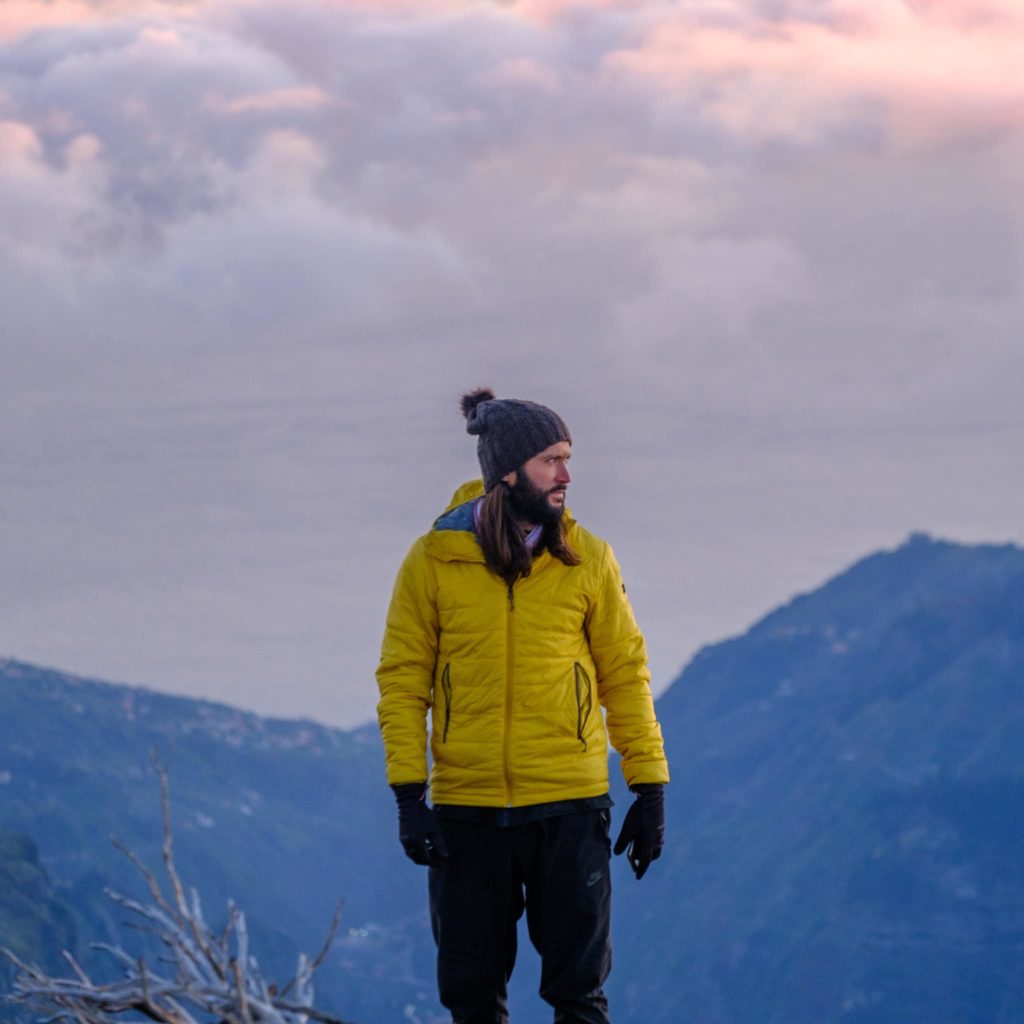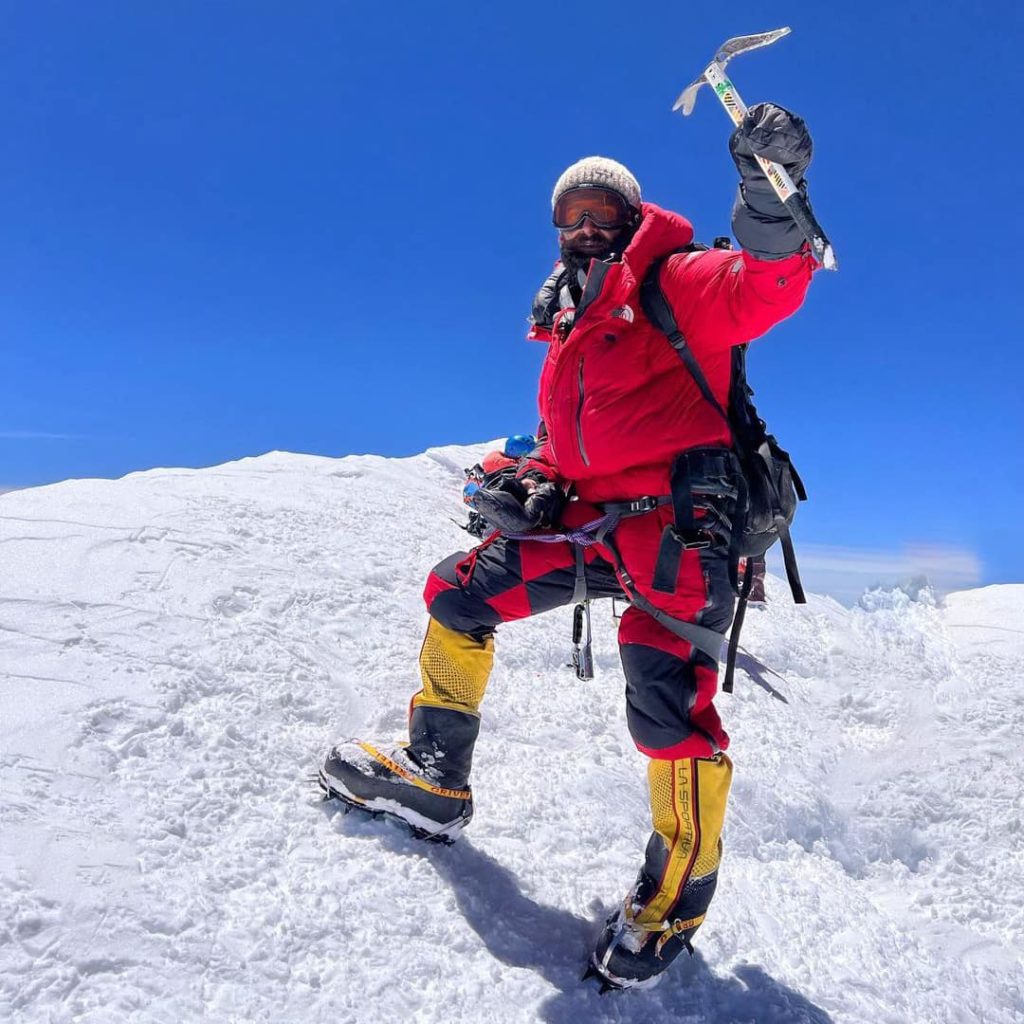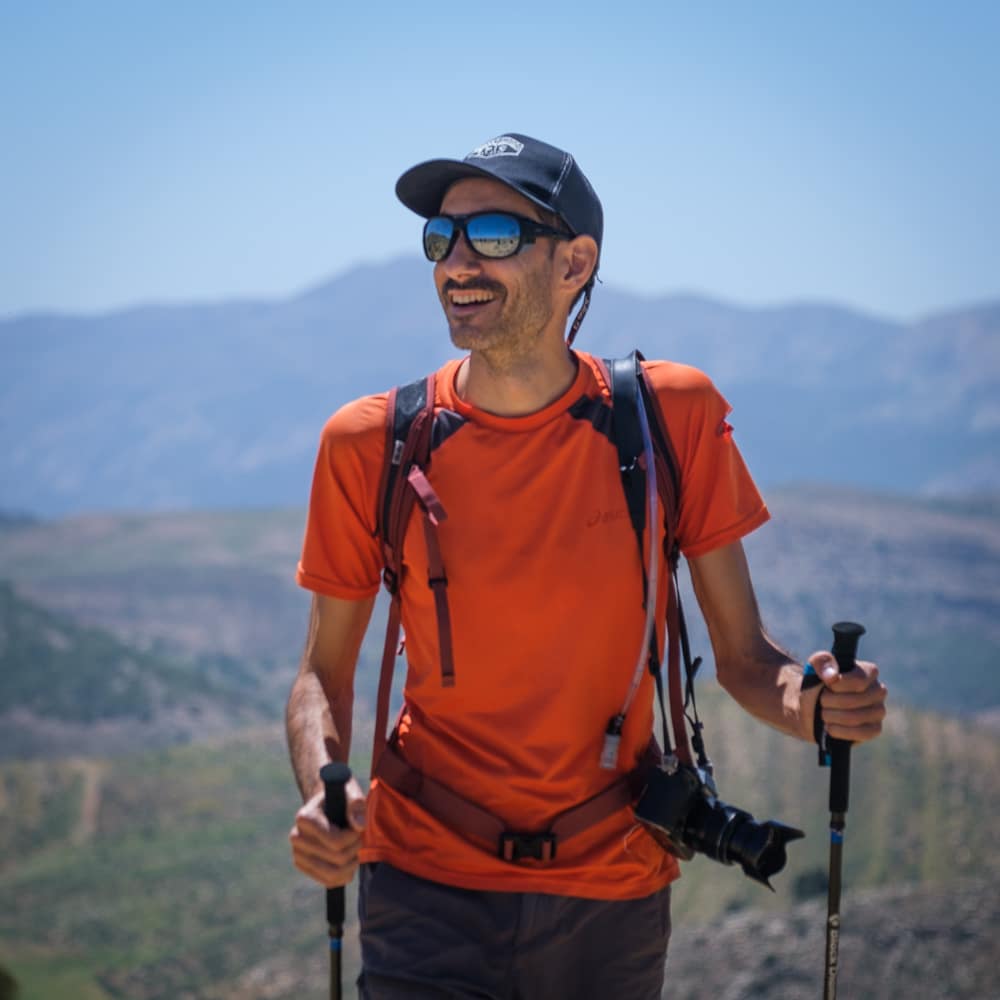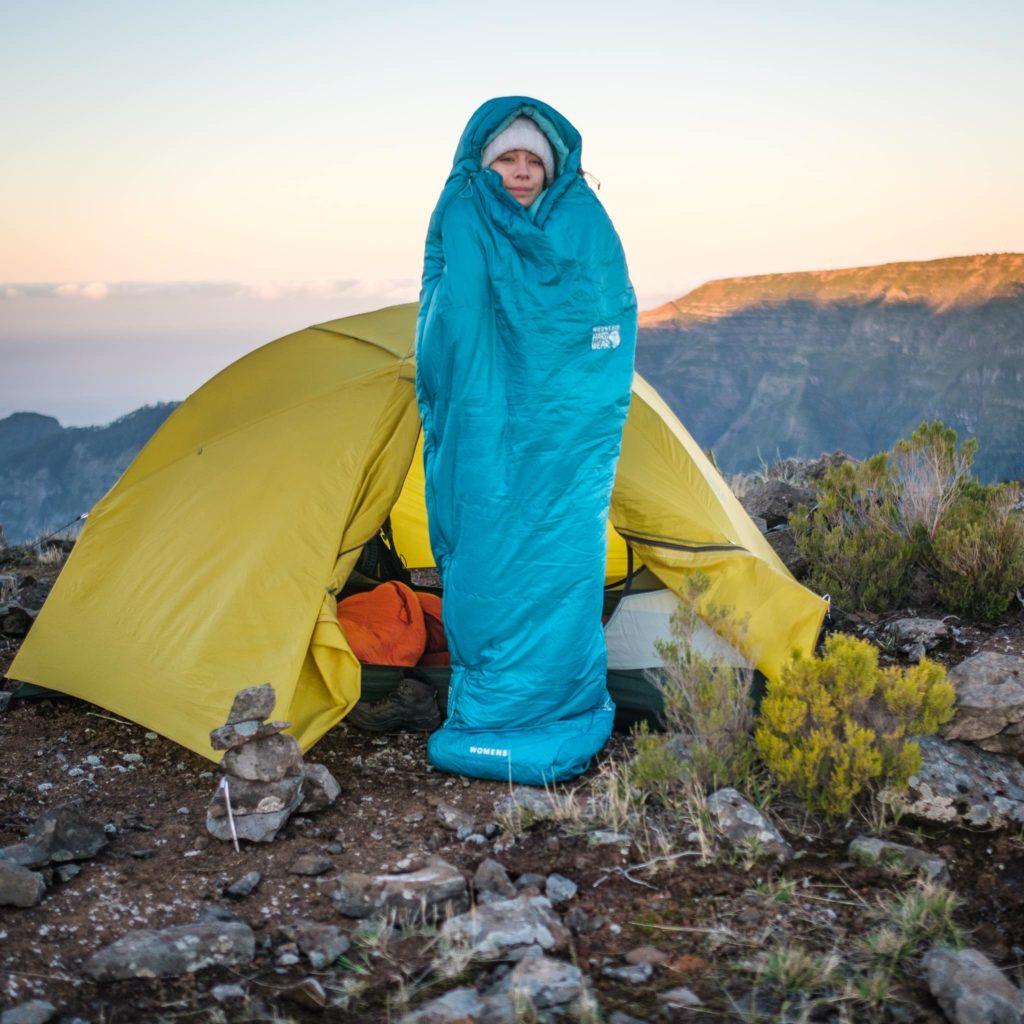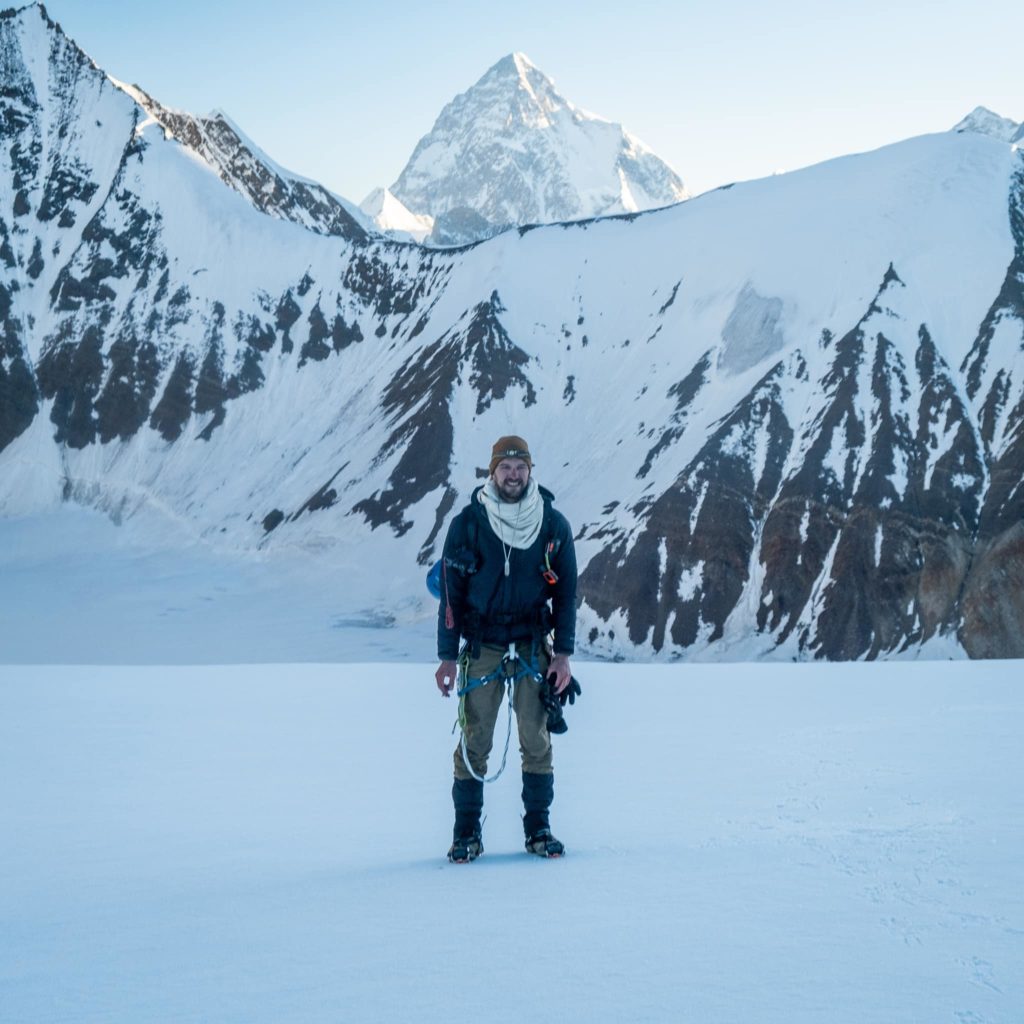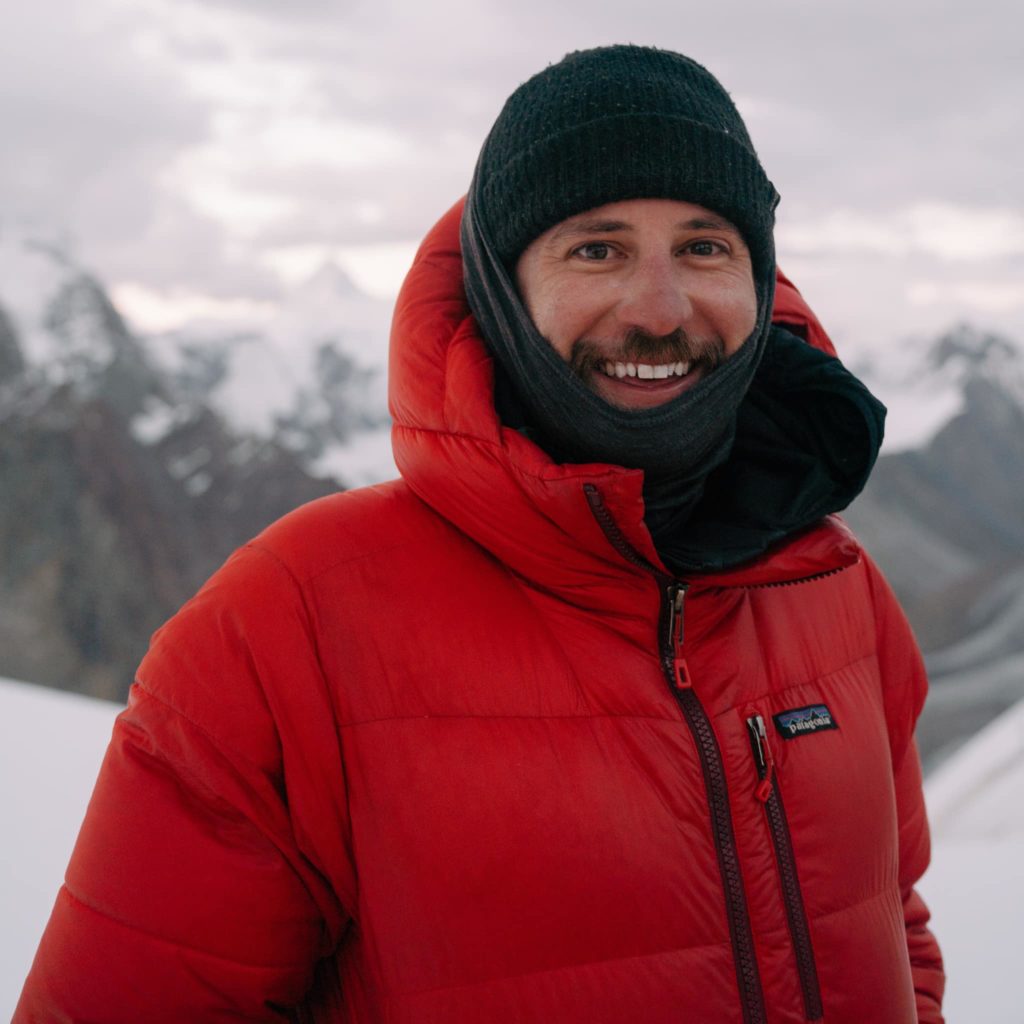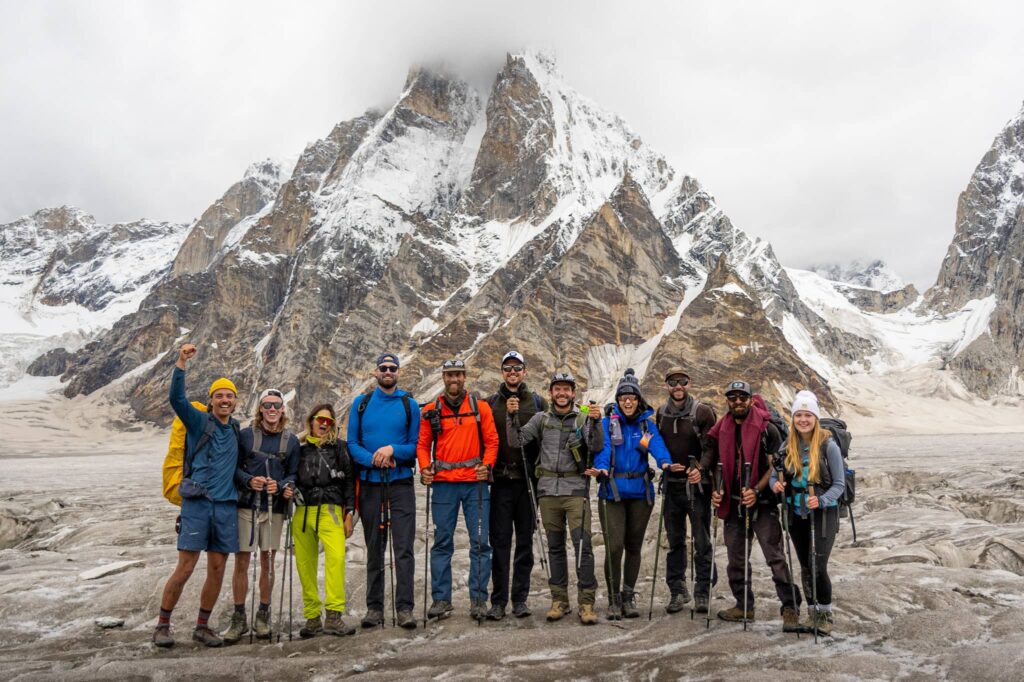Have you ever wondered why going for a walk makes you feel better? Well, there is a reason why the expression “just walk it off” has been the go-to way to clear a troubled mind for humans since the beginning of time.
So what exactly do hiking and good mental and physical health have in common and how do they work together? Lots of stuff as it turns out. From the countless physical benefits of hiking to more nuanced perks that affect your mood, sleep, creativity, and even relationships, there is a lot to unpack here.
Right, let’s “walk” through how hiking benefits physical and mental health and why you should make hiking more of a priority in your own life.
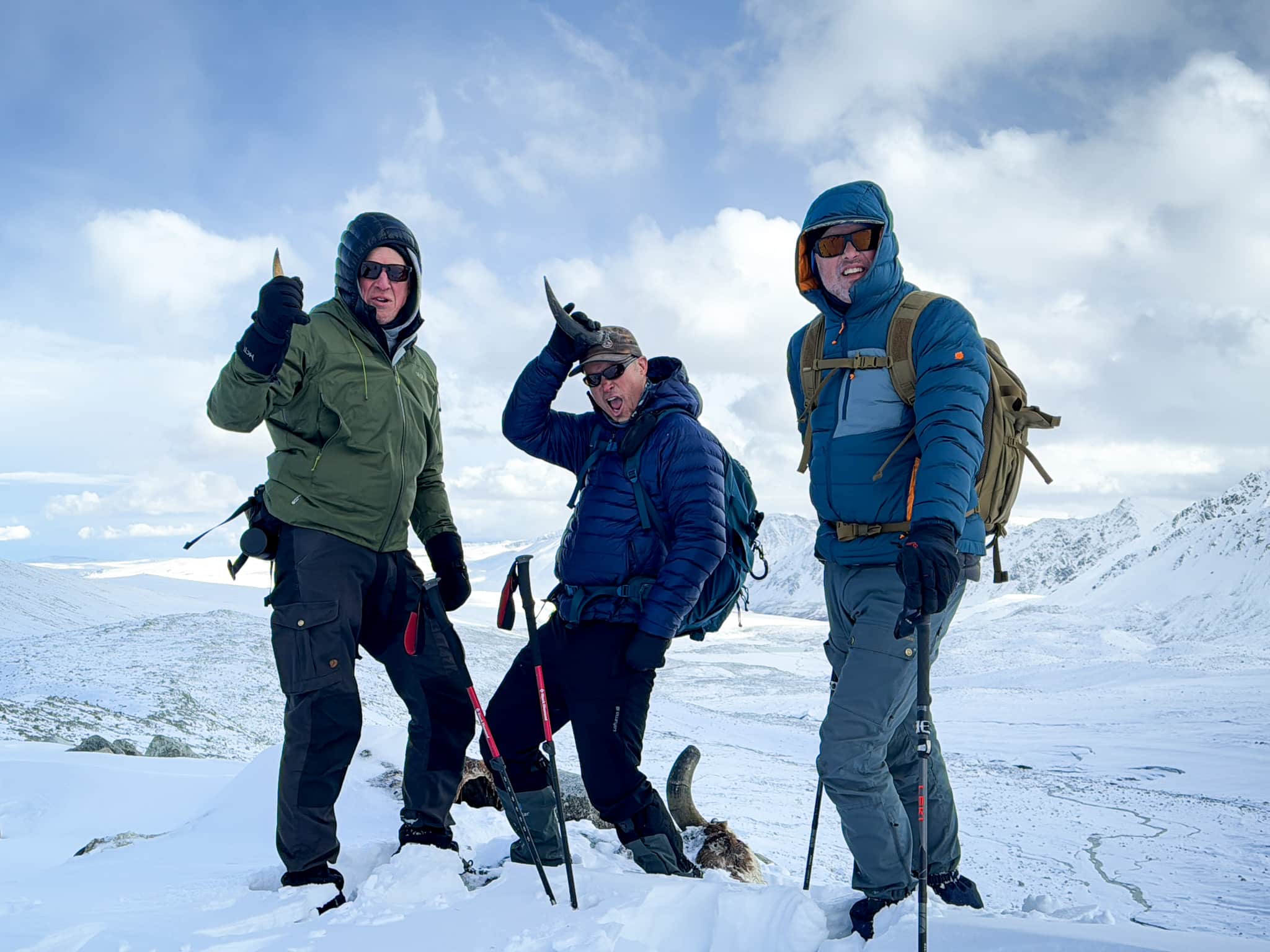
Why is Hiking Good for Your Mental Health
We were literally born to hike and the desire to do so is in our blood and DNA.
From the earliest humans to modern-day people, hiking as we know it today is rooted in our evolutionary history as natural walkers and explorers. As we have studied the effects of physical activities like hiking on our own well-being, the data is undeniable – “this hiking shit is good for you!”
One of the primary mental health advantages of hiking is its ability to reduce anxiety and stress. The American Hiking Society notes that physical activities like hiking help release accumulated adrenaline, alleviate muscle tension, and promote relaxation.
Additionally, the release of endorphins during hiking elevates mood and fosters a sense of well-being.
Hiking also serves as a powerful tool against negative thought patterns. A 2015 Stanford University study found that individuals who walked in natural settings for 90 minutes exhibited reduced rumination compared to those who walked in urban environments. This suggests that immersing oneself in nature can lead to a more positive mental state and decreased focus on negative aspects.
The cognitive benefits of hiking extend to enhanced creativity and problem-solving skills. Research indicates that disconnecting from technology and spending time in nature can improve creative problem-solving abilities by up to 50%. This cognitive boost is attributed to the diverse sensory experiences and the absence of constant digital distractions, allowing the mind to function more freely and creatively.
Our intrinsic connection to walking and nature is deeply embedded in our evolutionary past. Early human species, such as Homo erectus, were adept walkers, relying on bipedal locomotion for survival, exploration, and migration. This evolutionary trait has ingrained in us a natural affinity for walking and being outdoors. Engaging in hiking taps into this ancestral predisposition, fulfilling a fundamental aspect of our human nature.
Hiking can also take you places that planes, trains, and cars cannot – which in itself is awesome. With ever-mounting pressure and stress from busy modern life, the importance of going to remote, wild places is never as important for our collective mental health as it is right now.
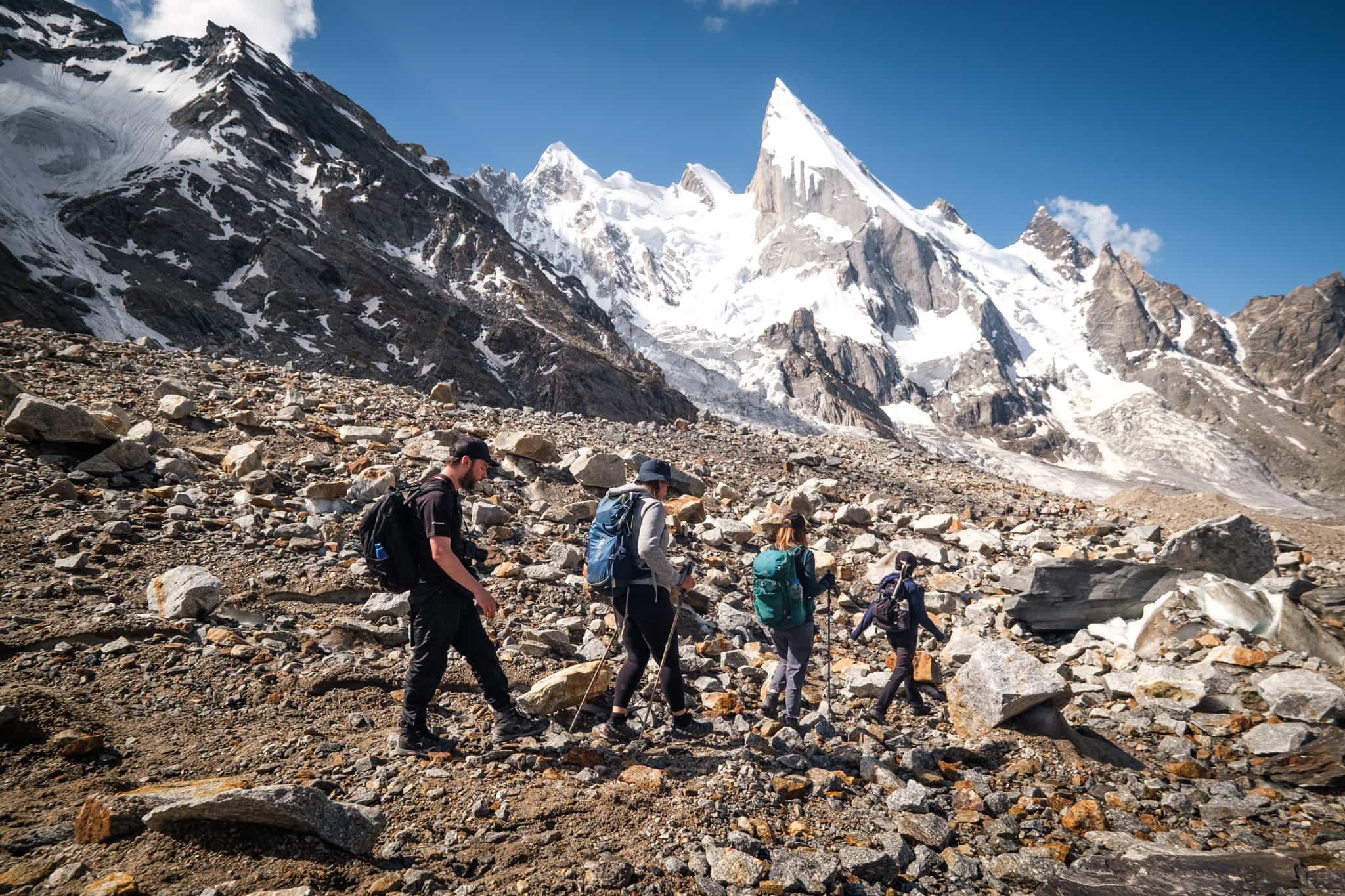
What is the Purpose of Hiking?
Speaking from personal experience here, having real purpose built into the things you do has proven to be one of the best things one can have in life. If you have a sense of purpose, that feeling tends to radiate out in all directions in a symbiotic web that increases motivation, creates better moods, fosters ambition, and the list goes on…
So, what is the purpose of hiking and how can it serve you?
In the most basic sense, hiking provides a sense of purpose by giving us a goal to strive toward. Whether it’s reaching the summit of a mountain, completing a long-distance trail, or simply exploring a new path near your home, each step forward fuels a greater sense of accomplishment, however small or large – a win is a win.
This process mirrors life itself: we set goals, push past obstacles, and grow stronger with every challenge we overcome.
Beyond the physical and mental aspects, hiking also serves as a way to connect—with nature, with others, and with ourselves. It reminds us of our place in the natural world, grounding us in something more primal and real. Humans evolved as walkers, constantly moving across landscapes in search of sustenance and shelter.
That instinct remains deeply ingrained in us, which is why hiking can feel so fulfilling (especially when our packs are full of delicious snacks; something our ancestors could only have dreamed about). It taps into something ancient, something we were built to do.
But one thing is certain: when you step onto a trail, you are stepping into something bigger than yourself—something that has the power to transform both body and mind.
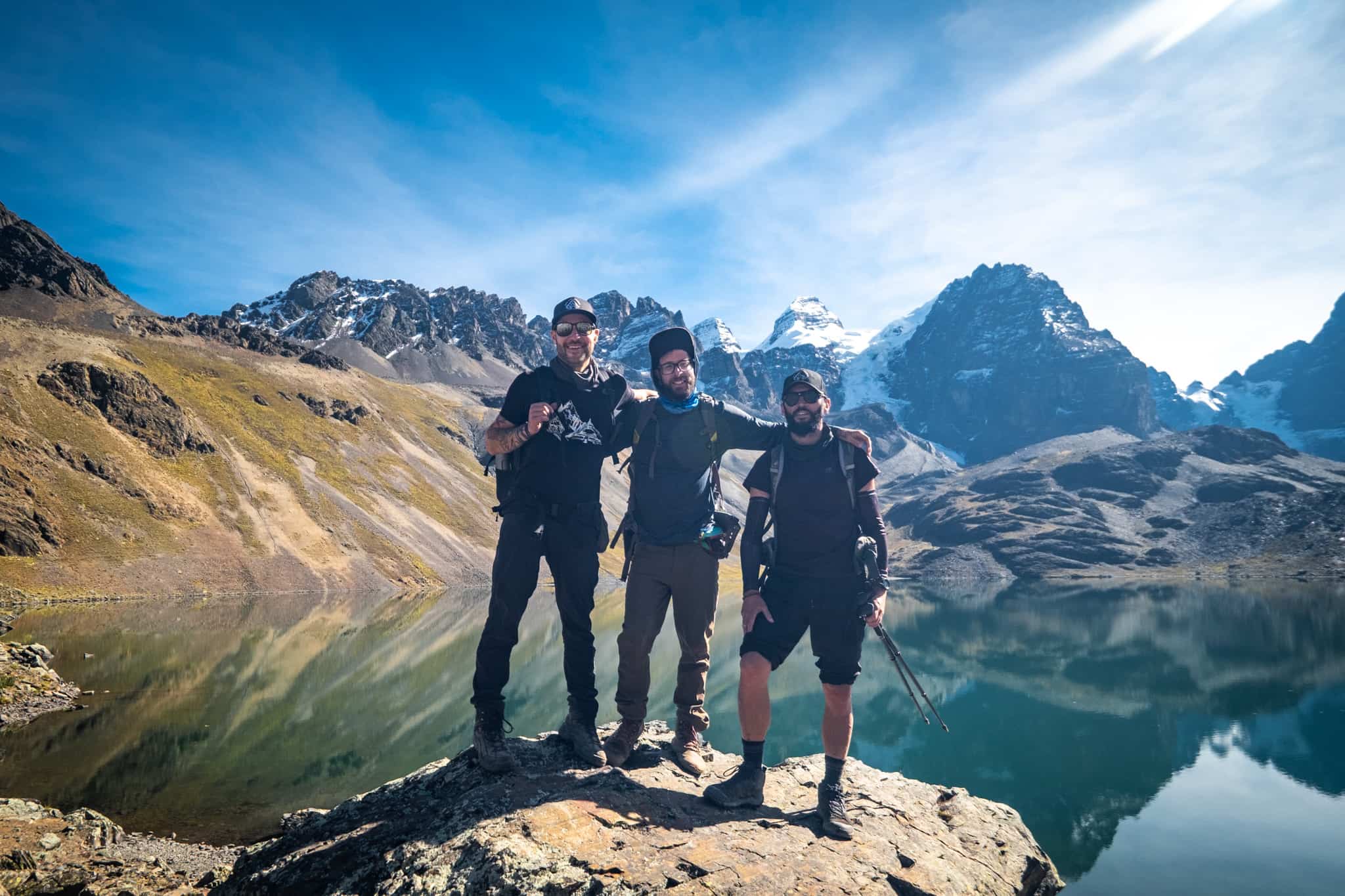
The Physical and Mental Health Benefits of Hiking
Ultimately, the purpose of hiking is whatever you need it to be. It can be as simple as a pleasurable part of your day when you are looking at pretty nature stuff and not lost in your thoughts or something more profound.
For some, it can be a form of meditation, a journey of self-discovery, a means of healing, or simply a way to experience joy in its purest form. And if you have experienced a beautiful sunrise a top of a beautiful mountain, then you know the kind of joy I am talking about.
Hiking as an exercise is also a low-impact activity, making it an ideal form of exercise for people of all fitness levels. It helps improve joint flexibility and bone density without putting excessive strain on the body, reducing the risk of injuries compared to high-impact sports. Additionally, spending time outdoors increases vitamin D intake, which is essential for strong bones and a healthy immune system.
Another major benefit is its ability to aid in weight management (supplemented by good nutrition, of course). A moderate hike can burn anywhere from 400 to 700 calories per hour, depending on terrain and intensity. But unlike running on a treadmill, hiking feels less like a workout and more like an adventure—making it easier to stay consistent with regular exercise.
Ultimately, hiking is one of the best ways to stay active while genuinely enjoying the process. Whether you’re tackling steep mountain trails or taking a leisurely walk through the woods, every step contributes to a healthier, stronger body. as they say, “nothing is better for trekking fitness than doing some hikes”.
Here are some specific examples of the physical and mental benefits of hiking:
Boosts Cardiovascular Health
Hiking is an excellent form of aerobic exercise, which means it strengthens your heart and lungs. Walking uphill increases your heart rate, improving circulation and lowering the risk of heart disease, high blood pressure, and stroke. Even a moderate hike can enhance endurance and overall cardiovascular fitness over time.
As we say over here at Epic, if you train your cardio more and more before coming on a trip with us, you “will enjoy the trip more, and suffer less”.
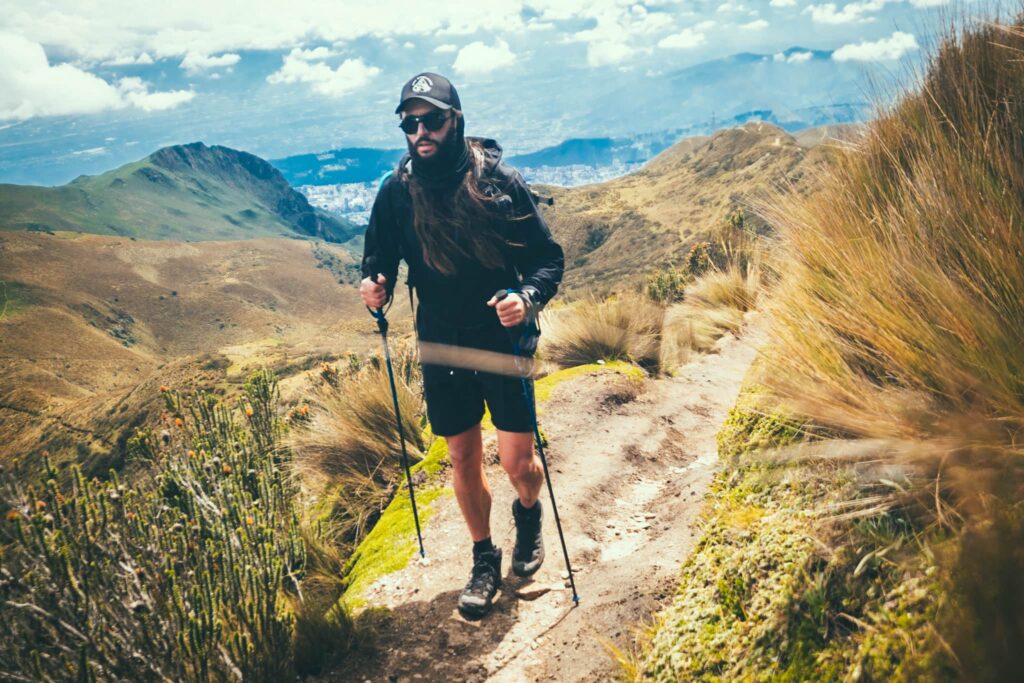
Builds Strength and Improves Balance
Unlike running or cycling, hiking engages multiple muscle groups at once, including your legs, core, and stabilizing muscles. Navigating uneven, mountainous terrain helps improve coordination and balance, reducing the risk of falls and injuries. Stronger muscles also support joint health, making everyday movements easier and more efficient.
Plenty of hikers also like to make yoga part of their routine to get even more out of their hiking-based strength and mobility training.
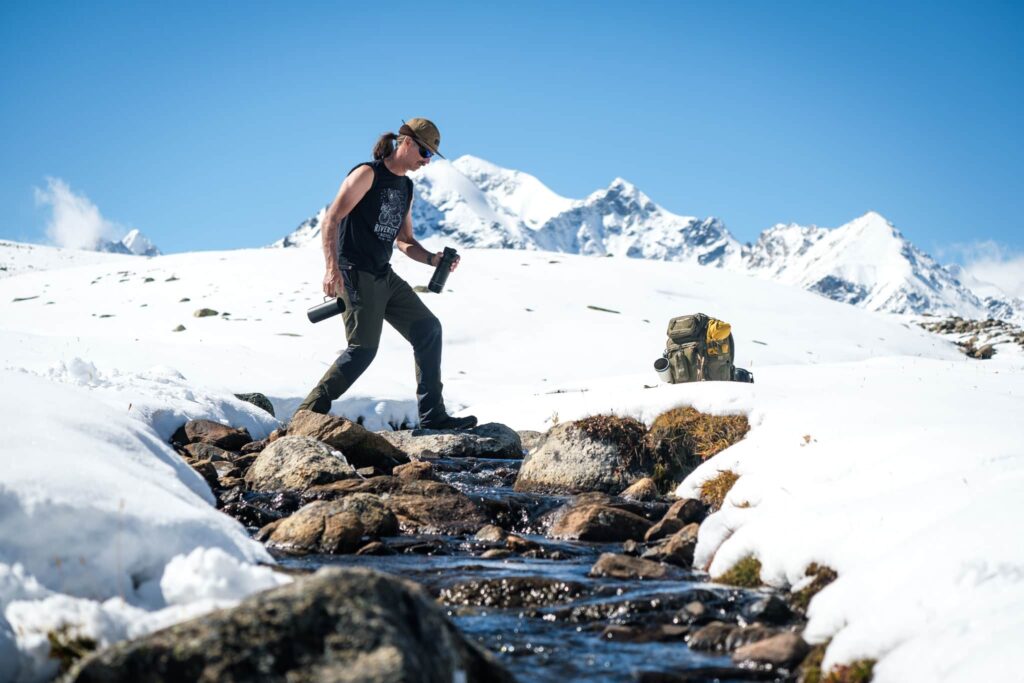
Reduces Stress and Anxiety
Personally, out of all of the benefits thus described, I find the reduction in stress in anxiety to rank among the highest things I get from a good old walk in the mountains.
Like many adults in the Western and Eastern world, I used to think social drinking of alcohol was one of the best ways to reduce my stress levels after a hard day/week/month. In fact, it only made it worse.
I love hiking because it is a sustainable, reliable way to reduce stress and anxiety. It is kind of a gift that keeps on giving. As only more hangovers come from short-term stress reducers like alcohol, typically more positive, life-bettering benefits come your way, the more you hike.
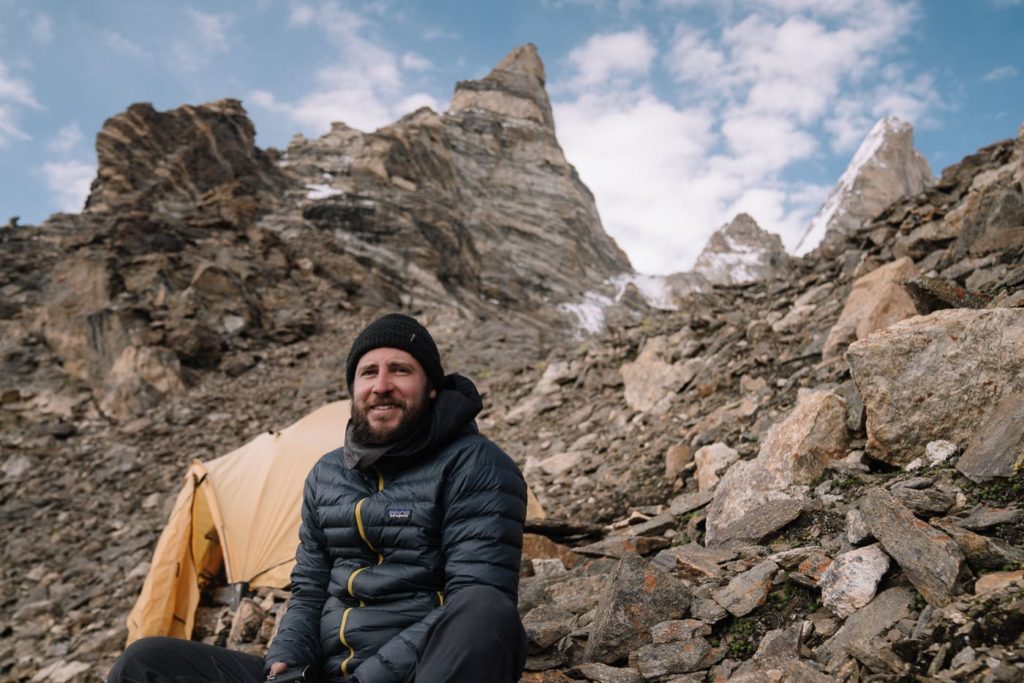
Enhances Mental Clarity and Creativity
Hiking gives your brain a break from the constant stimulation of daily life. Being in nature allows for deeper thinking, problem-solving, and creativity. In fact, research suggests that time outdoors can boost creative thinking by up to 50%, making hiking a perfect activity for those looking to clear their minds and find inspiration.
Just think of all the more creative stuff the likes of Picasso, da Vinci, and John Lennon could have done if they were hikers. Interesting to contemplate anyway.
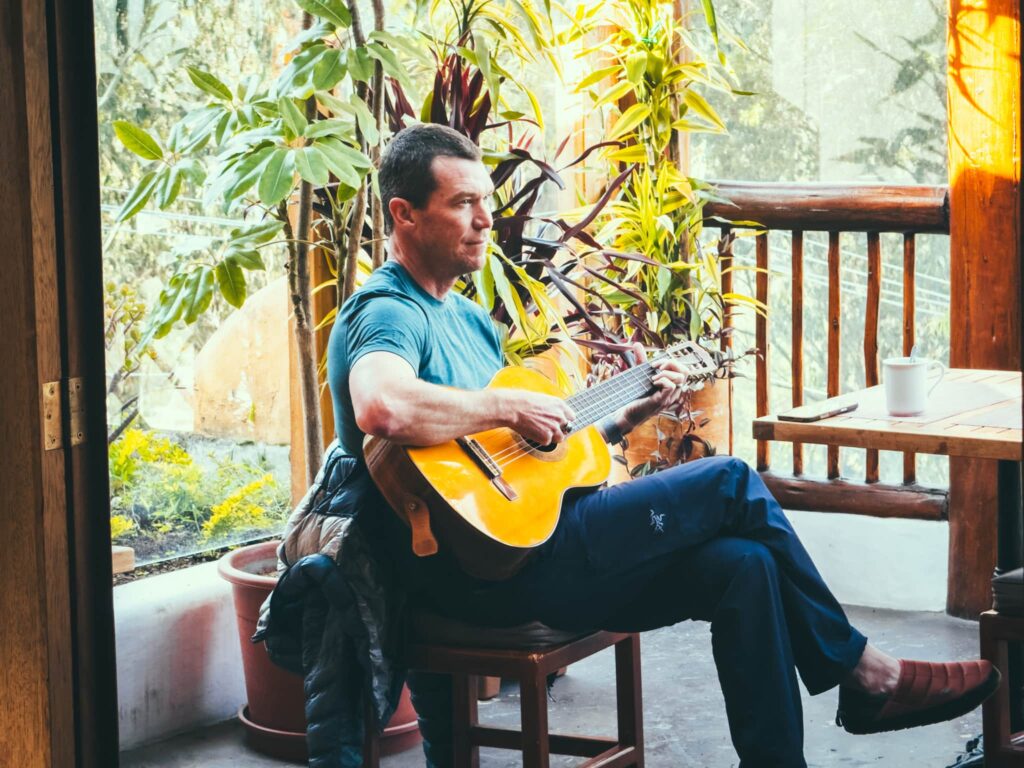
Hiking Allows you to Build Healthy Communities
As with any sport, hiking is a great way to build a strong community around you.
Though solo hiking is also great for other reasons, hiking with friends – new or old – brings people together in ways that having drinks and watching the game can never live up to.
Positive shared human experiences can be one of the most meaningful bonds we can share with each other. When that experience is rooted in a fun adventure or challenging hike, your bonds with others grow stronger.
Whether you are hiking once a week or once a month, it one of the best ways to build and maintain a community around you.
Pro tip: make friends with people who bring excellent snacks.
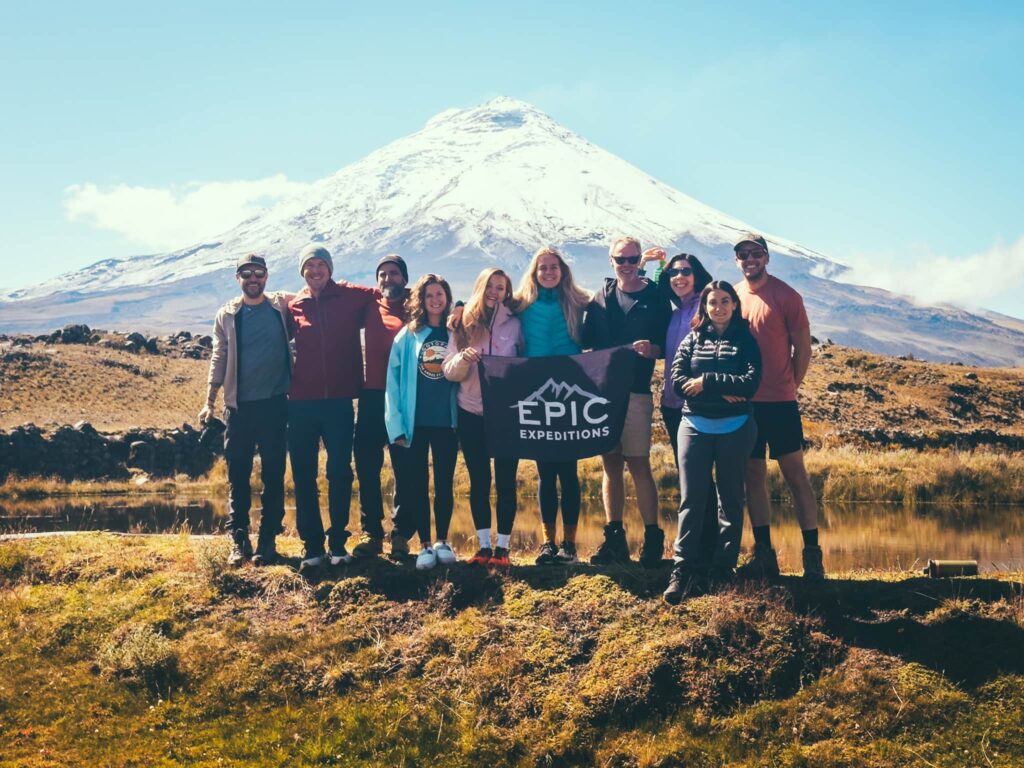
How to Prioritize Your Health and Start Hiking
If hiking is not built into your routine then the only thing to do now is start hiking.
Your work schedule or geographic location might make that difficult. If you live in a big city, far from any trails or in a country that is flat and has no mountains or forests, don’t panic, you still have options.
As you think about your current day-to-day schedule and also your social and holiday calendar for the year, you need to ask yourself how you will prioritize hiking.
There are many ways to get into hiking as a hobby or to work towards fitness goals. Here are some ways that you can prioritze your health and start hiking in nature on a regular or semi-regular basis:
Join an Organized Hiking Tour
Cough, cough, Epic Expeditions can make that happen for you.
Seriously, If you’re new to hiking or unsure where to start, joining a guided hiking tour is a great way to ease into it. Epic Expeditons for example, offers hikes tailored to different experience levels, ensuring you have the right guidance, safety measures, and support.
Our expeditions can take you to breathtaking locations that are difficult or altogether impossible for you to reach on your own, while also helping you learn the basics, such as trail navigation, camping 101, proper gear use, and hiking etiquette. Plus, hiking with a group allows you to connect with like-minded adventurers from around the world, making the experience even more enjoyable.
Reach out to us if you want to join us for a trip!
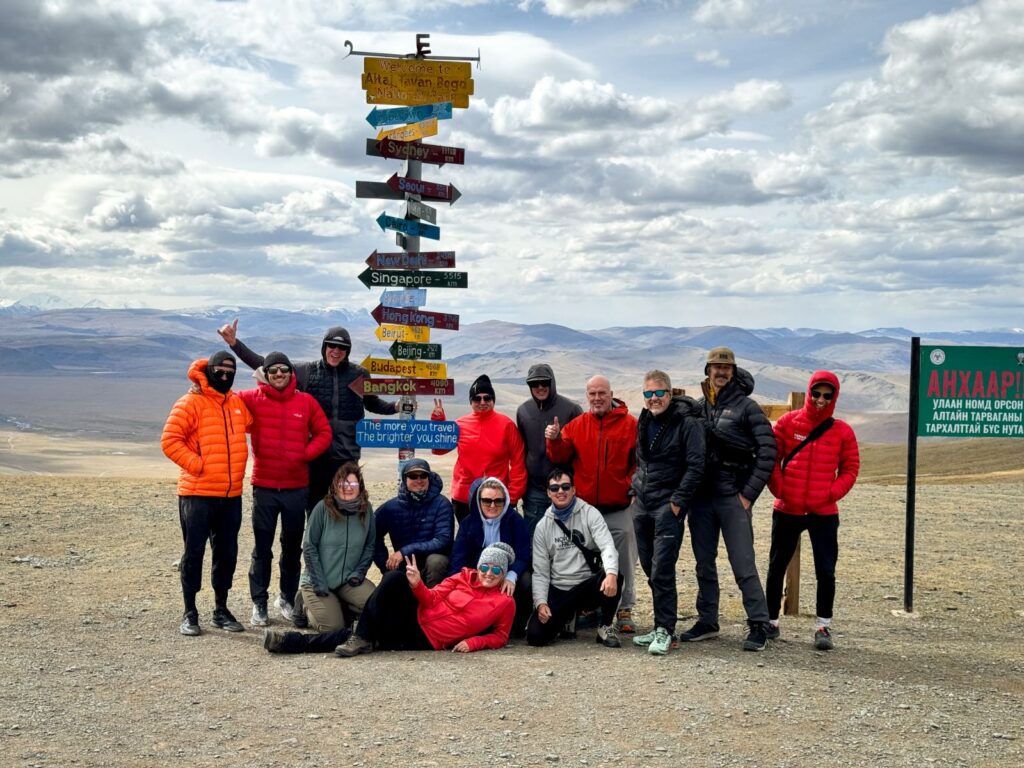
Look Into Joining a Local Hiking Club or Meetup Group
One of the easiest ways to stay committed to hiking is by joining a local hiking club or Meetup group. These communities provide a sense of accountability and motivation, making it more likely that you’ll stick to your hiking goals.
Many clubs organize regular group hikes, ranging from beginner-friendly trails to challenging mountain treks. Being part of a group also means you’ll have experienced hikers to learn from and new friends to share the journey with.
If you don’t have a hiking group where you live, start one!
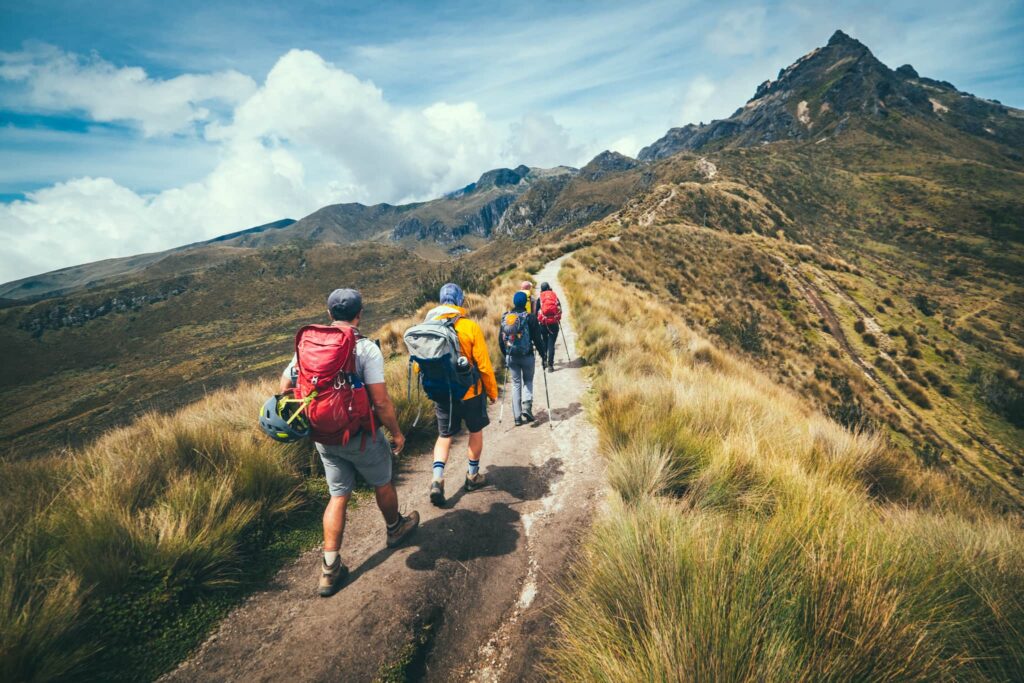
Go on Holiday to Places Specifically for Hiking
Look, I used to plan my holidays around which exotic places had the coldest beer and cheapest hostels. So for some, planning your vacation time around hiking might take some getting use to. It did for me
Truth be told, the world is full of places that have incredible hiking and climbing opportunities; from Nepal and Pakistan to Peru and Norway – if you start prioritizing hiking during your vacation time – then you inevitably spend more time hiking and less time drinking rum on a beautiful beach.
Make your next holiday an active holiday, I promise you won’t regret it.
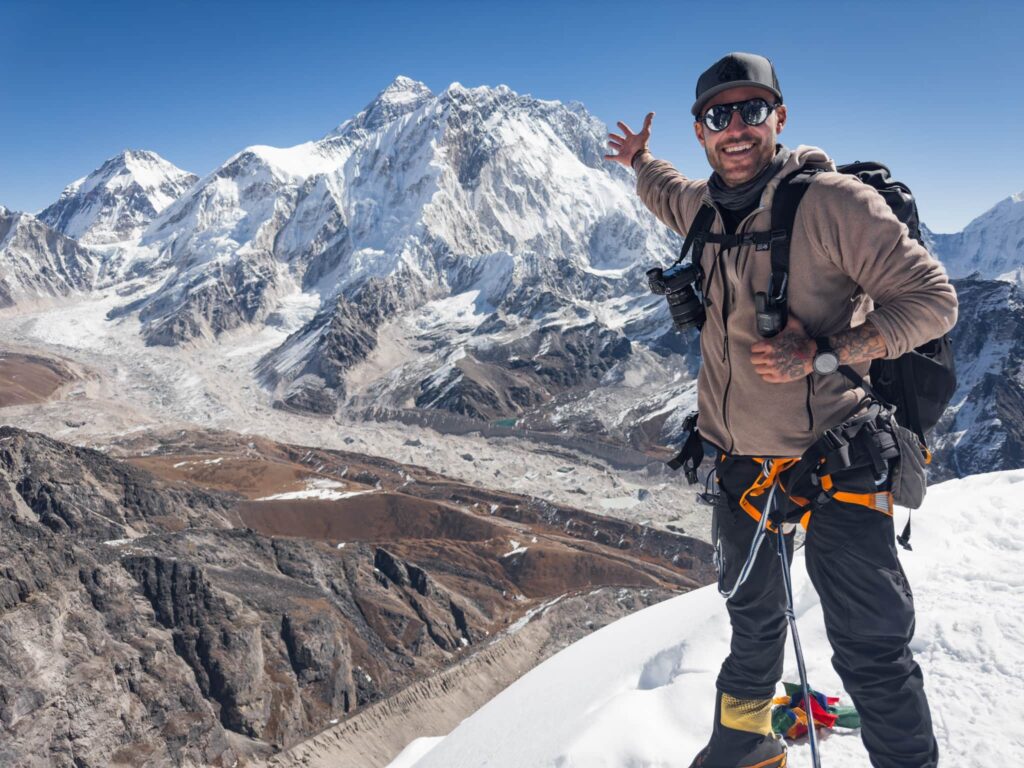
Stop Drinking During the Weekends and Go Hiking Instead
You might have noticed a theme by now that hiking and drinking are not the best combination.
Many people spend weekends unwinding with alcohol, which can leave them feeling sluggish and unmotivated. A great way to prioritize your health is to replace weekend drinking with hiking. Period.
Not only will this improve your physical well-being, but it will also enhance your mental clarity, energy levels, and overall sense of fulfillment. Hiking offers a natural high—one that leaves you feeling refreshed rather than drained. Instead of waking up with a hangover, you’ll wake up ready to take on a new adventure.
I challenge anyone reading this to take 1-2 months off of weekend drinking and go for hike instead. If you feel worse after the end of these two months, I permit you to go back to drinking.
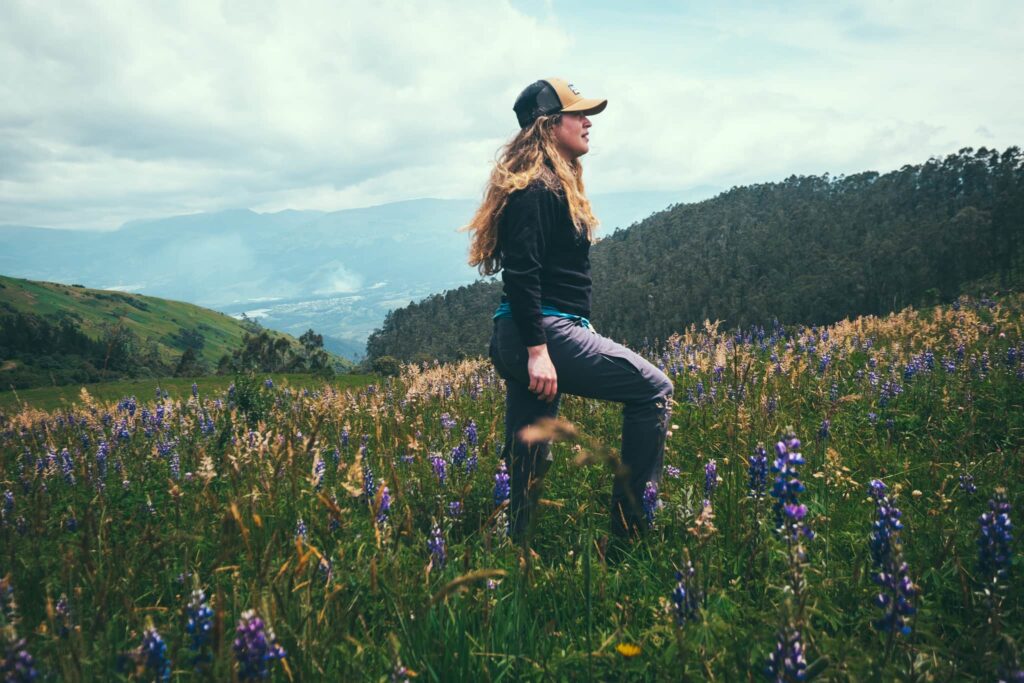
Set a Hiking Goal for Yourself
Having a clear goal can make all the difference in staying consistent with hiking.
Set a target that excites and challenges you—whether it’s completing a specific trail, summiting a mountain, or hiking a certain number of miles each month.
You can even sign up for a long-distance hike, such as the K2 Base Camp Trek and have something big to work towards. Tracking your progress and working toward a goal will keep you motivated and give you a sense of accomplishment with each step you take.
And remember, train hard, set goals, and suffer less for the bigger hiking objectives!
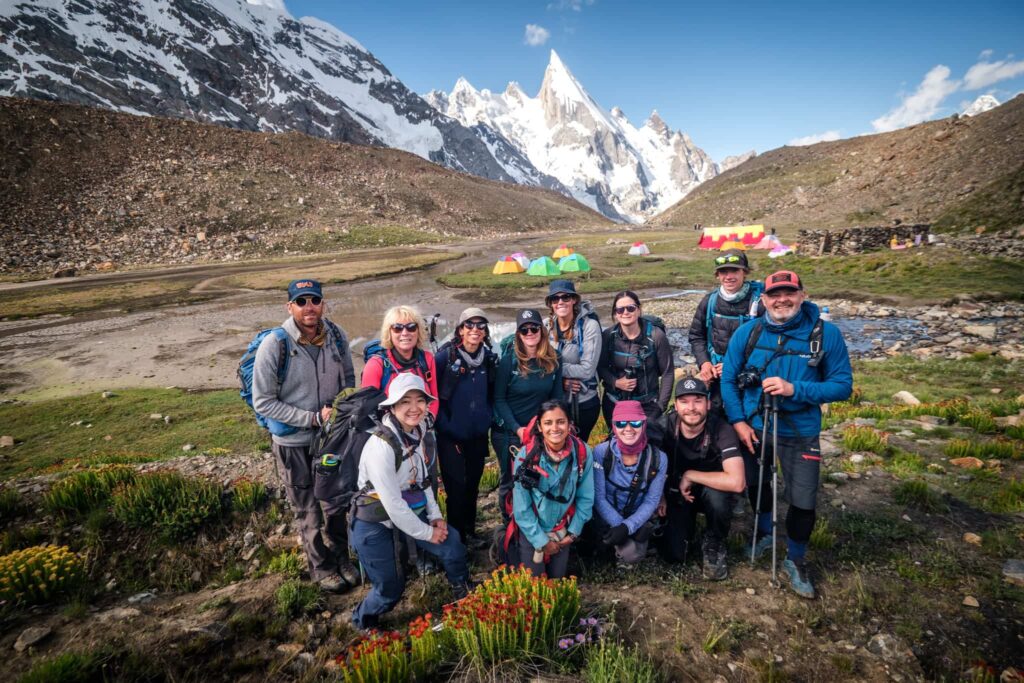
Wrap Up: Physical and Mental Health Benefits of Hiking
This blog article could turn into a book on this subject pretty quickly, so I will end it there.
Hopefully, this article provided you with helpful insights and some food for thought regarding the physical and mental benefits of hiking while offering a little bit more about why Epic Expeditions as a company is so passionate about helping people spend as much time outside hiking as possible.
We firmly believe that there are no limits to the benefits of hiking and all of the places such a simple act as walking can take you.
If you are wanting to feel better, think more clearly, and generally have more adventurers during your year, we hope you are able to prioritize getting more hiking and nature time in your routine, holidays, and everywhere in between.
Please drop us a comment below if you have any more thoughts related to the physical and mental health benefits of hiking.


